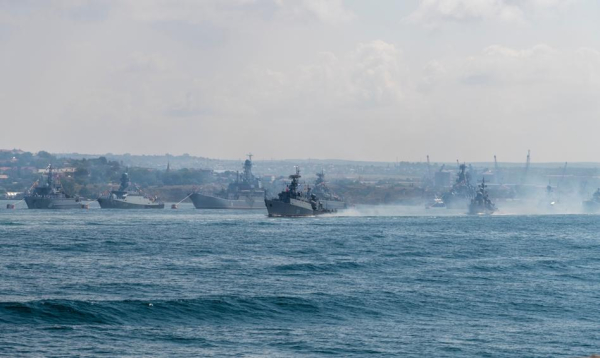An agreement between Ukraine and Russia on a ceasefire in the Black Sea is impossible; both countries have different views and interests on this issue, said Andriy Klymenko, an analyst at the Ukrainian Institute of Black Sea Strategic Studies and editor-in-chief of the BlackSeaNews portal.

“When Ukraine talks about a ceasefire at sea, it means that it expects its civilian ports and civilian ships not to be attacked by Russia. For Russia, a ceasefire means that Ukraine will not attack its warships, because “soon we (Russians) will not have any ships”, and that Russia will once again control every ship that sails to the (Ukrainian) port of Odessa,” he told PAP.
Since Sunday, talks on a ceasefire in Russia's war with Ukraine have been underway in Riyadh, Saudi Arabia. They are led by U.S. officials, who are meeting separately with delegations from Kiev and Moscow.
Kremlin spokesman Dmitry Peskov recently said that one of the main topics for Russia is the restoration of the so-called Black Sea Initiative, agreed in July 2022. Thanks to it, almost 33 million tons of Ukrainian grain were exported through the Black Sea despite the war. Russia withdrew from the Initiative after a year, claiming that its food and fertilizer exports were facing serious difficulties.
“But nobody expelled Russia from the Black Sea Initiative, it resigned from it itself, because it could not prevent its implementation,” Klymenko noted.
Despite Russia’s withdrawal from the Black Sea Initiative, Ukraine has managed to continue grain shipments with the help of drones and its own assets that deter Russian ships. By the end of 2024, more than 90 million tons of cargo had been exported through the Ukrainian maritime corridor.
“Over the course of more than three years of the Great War, Ukraine has never attacked civilian ships leaving Russian ports or Russian civilian ports, and there are many more of them than Ukrainian ones,” the PAP interlocutor stressed.
Ukrainian attacks on Russian ports focused on military targets: fuel terminals in the port of Kavkaz, an oil refinery near the port of Tuapse, and ships moored at the Zaliv shipyard in Kerch and the Morzavod shipyard in Sevastopol, he said.
“Our drone attacked a civilian tanker SIG, which is actually a tanker operated by Oboron-Logistics, a company founded by the Russian Defense Ministry. This unit was transporting aviation fuel for the Russian contingent stationed in Syria at the time,” the analyst noted.
Since Russia’s full-scale invasion in February 2022, Ukraine has conducted 42 successful attacks on Russian warships in the Sea of Azov and the Black Sea, destroying 22 ships and damaging 20.
“In turn, the Russian Federation has damaged 33 civilian ships from different countries over the three years of the war. Moreover, if we talk about attacks on Ukrainian civilian ports, then during the 366 days in 2024, three ports – Odessa, Chornomorsk and Pivdenny – were attacked for 144 days,” he noted.
“In the Odessa region alone, there were 71 attacks with Iskander ballistic missiles. No one counted the drones anymore, because there were hundreds of them. These attacks, especially in combination with ballistic missiles, caused a lot of damage to civilian ports, destroying grain, container, coal, sunflower oil and similar terminals,” Klymenko said.
He assessed that Russia's efforts to include the Grain Initiative in the ceasefire talks are another attempt to accuse Ukraine of seeking to continue the war. “The grain corridor will continue to operate as it does. Russia has returned to this topic, knowing that this proposal will not be accepted by Ukraine, and thus Russia will be able to state that Ukraine does not want peace,” he noted.
He recalled that Russia's main problem in the Black Sea is that its Black Sea Fleet cannot operate there. “We have successfully moved the Black Sea Fleet from Crimea to Novorossiysk. The only problem we have is Russian attacks on civilian ports, which we cannot defend due to the lack of air defense resources,” the analyst explained.
In his opinion, the return of the Black Sea Fleet to the Black Sea would mean the end of Ukraine's victory over Russia in this water. What's more, he said, concerns about such a possibility have been expressed by Romania, Bulgaria and Türkiye, which are located on the Black Sea.
“It's very hard to imagine, because what does it mean? That Russian ships will return to Crimea? It would be a denial of Ukraine's victory at sea. I can't imagine such a situation. The positions of the two sides are completely mutually exclusive here,” Andriy Klymenko said.
From Kiev Jarosław Junko (PAP)
jjk/ akl/ amac/






